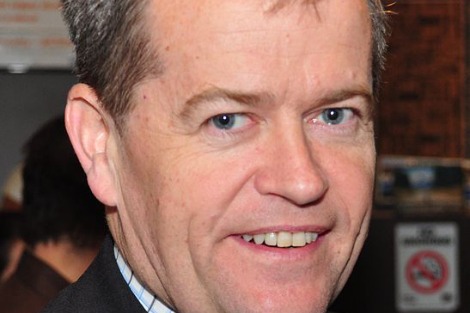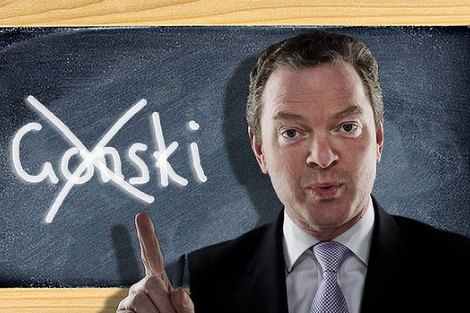Keywords: Education Funding
There are more than 200 results, only the first 200 are displayed here.
-

AUSTRALIA
- Michael Mullins
- 19 May 2014
6 Comments
When Tony Abbott reintroduced knights and dames back in March, critics said it was a sign he was 'stuck in the 1950s'. Another characteristic of 1950s Australian society was the sectarianism that bitterly divided the nation along religious lines. There are echoes of this in last Tuesday's Federal Budget announcement that schools will lose the option of appointing non-religious welfare workers under the national school chaplaincy program.
READ MORE 
-

AUSTRALIA
- Fatima Measham
- 19 May 2014
16 Comments
Notwithstanding Kevin Rudd's merit as a candidate, there is no doubt that the unions-led campaign against WorkChoices was pivotal to handing government to Labor. What Bill Shorten has been handed this week in the Federal Budget is several WorkChoices with which to galvanise people. He needed it. His Budget reply offered a glimpse of the sort of Opposition Leader that Australians deserve.
READ MORE 
-

ECONOMICS
The 2014 Federal Budget has created a new hierarchy of virtue in Australian society, with well off investors deemed to be good and the disadvantaged bad. It is not so much class war as a war between capital and the rest of society. Those wielding significant capital are useful, while those who can save little, and have little to invest, are considered a burden.
READ MORE 
-

AUSTRALIA
The Budget does not signal an end to the 'age of entitlement', as there are still plenty of beneficiaries of government expenditure or foregone revenue. You don't need to be an economist to see that collectively the Budget measures will impact negatively on the income levels of the poor and disadvantaged. The discussion now must be who will pick up the pieces left behind by Government in developing a system with obvious gaps.
READ MORE 
-

EDUCATION
- Dean Ashenden
- 06 May 2014
9 Comments
The Commission of Audit has planted so many landmines across the political landscape that two have been scarcely noticed. One is planted directly under Gonski, the other under the federal role in schooling. Christopher Pyne's brazen effort to get rid of Gonski served only to show that he is not to be trusted. Abbott must be wondering whether this minister could carry the day with the kind of scheme recommended by the Commission.
READ MORE 
-

AUSTRALIA
- Michael Mullins
- 31 March 2014
5 Comments
The Federal Government is moving to abolish the body set up to protect and regulate the non-profit sector. Vinnies CEO John Falzon describes the action as 'ideological', while Melbourne Catholic education chief Stephen Elder sees it as an opportunity to spend more time raising money and delivering services. The Government must explain the policy imperatives driving it to dismantle such an extensively considered piece of legislation.
READ MORE 
-

ENVIRONMENT
- Neil Ormerod
- 11 February 2014
12 Comments
The international movement to divest from investment in fossil fuels is gathering momentum. Investors are starting to realise that as governments act to restrain fossil fuel consumption, fossil fuel companies will find their assets being written down. This is particularly pertinent to Australia, the second largest coal exporter. And it raises questions for Australian religious bodies about the prudent and moral use of their resources.
READ MORE 
-

AUSTRALIA
- Frank Brennan
- 11 February 2014
1 Comment
'The market for disability services will need to be underpinned with a strong and robust internal risk management framework. There will be an increasing number of for-profit operators in the sector. Hopefully the not-for-profit operators will make the necessary adaptations competing in the market and providing the ethos for the market to deliver services in a dignified, fair and transparent manner.' Frank Brennan's Leading the Way Seminar for the National Disability Service
READ MORE
-

AUSTRALIA
- Moira Byrne Garton
- 17 January 2014
3 Comments
Dr Maurice Newman, chairman of the Prime Minister's Business Advisory Council, last week cautioned the Government against listening to certain interests at the expense of the common good. His criticism of the former Government as 'reckless' for establishing and funding the National Disability Insurance Scheme reveals an upsetting indifference and a lack of awareness of the benefits of such a scheme both to individuals and to society as a whole.
READ MORE 
-

EDUCATION
- Dean Ashenden
- 15 January 2014
The backsliding began before Gonski even got started: his riding instructions were to ensure that 'no school will be worse off'. Since then one backward step has followed another. What the prime minister wants now from the state premiers when they meet on 19 April is not Gonski but the appearance of Gonski. She may not get even that.
READ MORE 
-

AUSTRALIA
- Ray Cassin
- 04 December 2013
9 Comments
The Education Minister Christopher Pyne has spun the latest developments on education funding reforms as having saved Gonski and achieved what Labor could not. But it is an achievement derived from surrendering oversight of how the money will be spent. If public schools continue to be the losers in the battle for funds, the reversals of the past fortnight will be remembered as the start of a slow burn for the Abbott Government.
READ MORE
-

EDUCATION
- Dean Ashenden
- 02 December 2013
20 Comments
Federal Education Minister Christopher Pyne is correct in saying that the Gonski scheme is a mess, but culpably wrong to use that fact to ditch the whole idea. The Gonski mess shows few of the actors concerned in a good light, and some, including Pyne himself, in a very poor one. Pyne's contribution to this debacle was to act as spoiler from the day the Gonski report was released. In that role he has so far adopted no less than four positions.
READ MORE